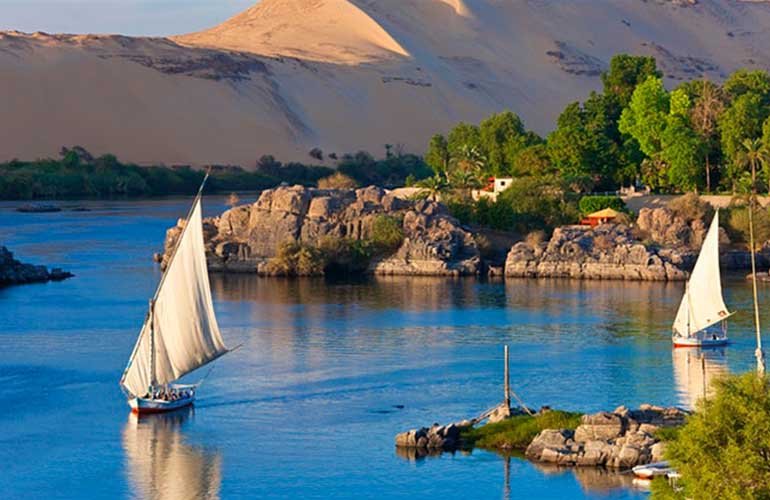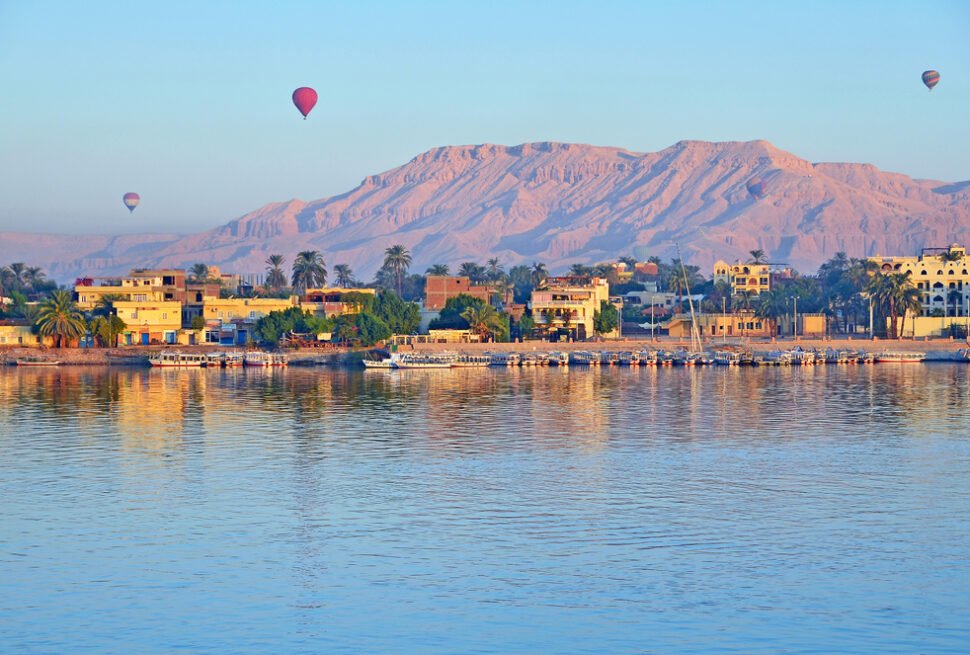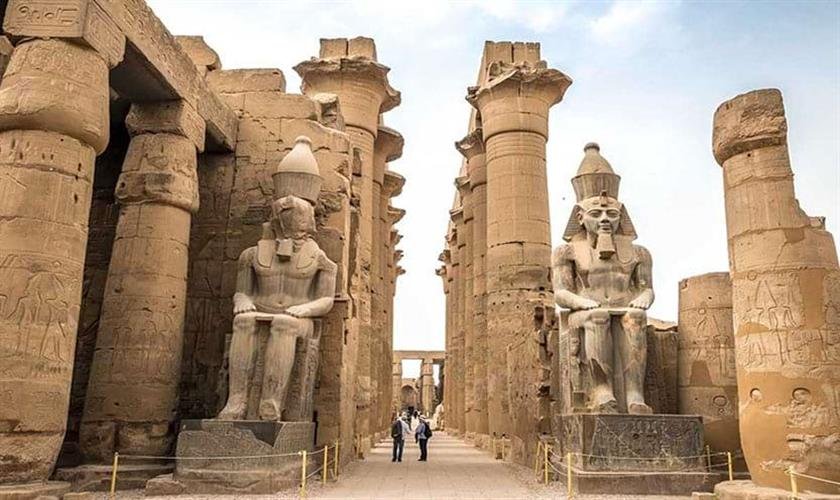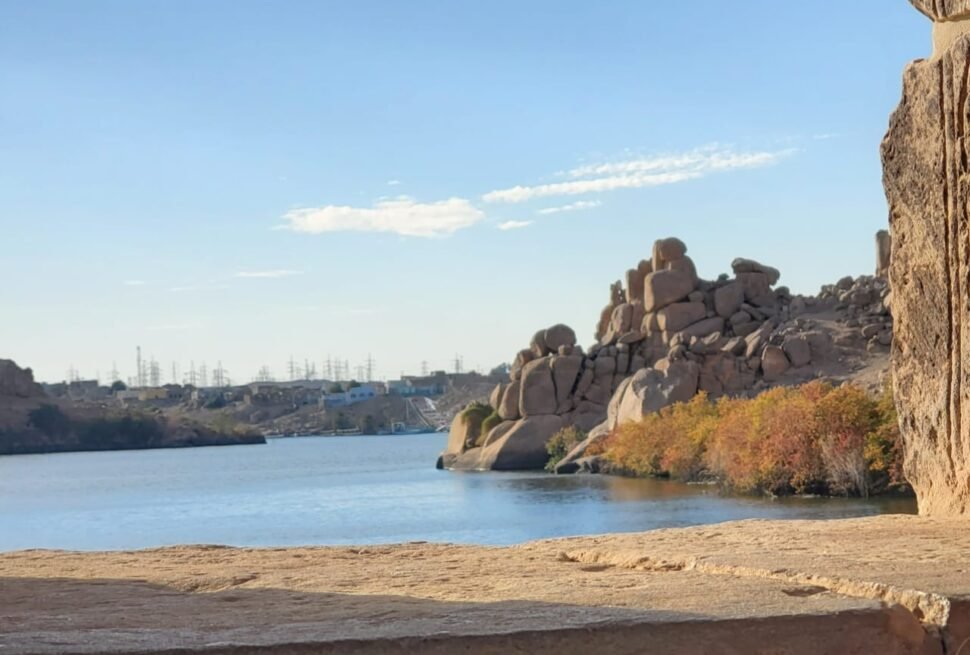Aswan is a city in the southern part of Egypt, located on the east bank of the Nile River. It is known for its rich history, archaeological sites, and natural beauty. Here are key details about Aswan:
1. Historical Significance
- Ancient Egypt: Aswan, known in ancient times as Swenet, was an important regional capital and military center. It served as a gateway for trade routes between Egypt and Nubia (modern-day Sudan). The city’s strategic location also made it a vital center for Egypt’s control over the southern borders.
- Aswan High Dam: The Aswan High Dam, completed in 1970, is one of the most significant achievements in modern Egypt. It controls the Nile’s flooding, generates hydroelectric power, and improves irrigation for agriculture. The dam led to the creation of Lake Nasser, one of the largest artificial lakes in the world.
2. Key Attractions
- Philae Temple: Located on an island in the Nile, this temple complex is dedicated to the goddess Isis and was relocated after the construction of the Aswan High Dam to prevent flooding. It is a major attraction for tourists interested in Egyptian history and architecture.
- Abu Simbel: Situated about 230 kilometers (140 miles) south of Aswan, the Abu Simbel temples were built by Ramses II. These temples, famous for their massive rock-cut statues, were also relocated to higher ground to avoid submersion due to the dam.
- Aswan Museum: It houses artifacts from Aswan and Nubia, including pieces from the temples and monuments of the region.
- Nubian Village: A cultural experience, where visitors can learn about Nubian life, art, and architecture. The village is located on the Nile’s west bank.
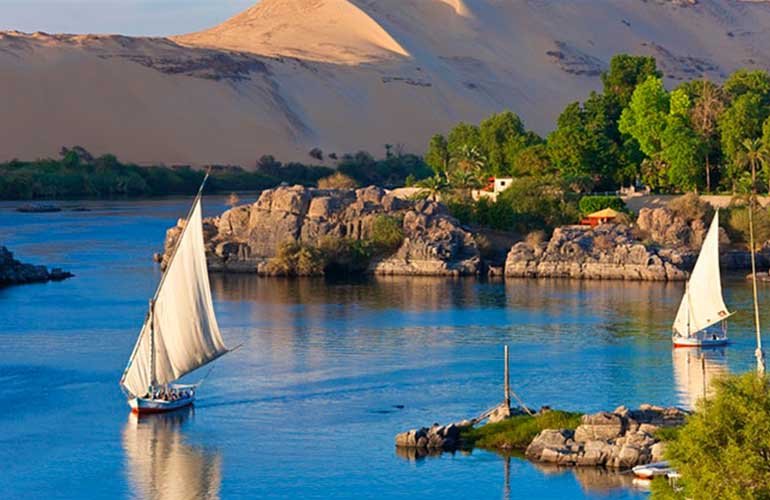
3. Geography and Climate
- Location: Aswan is located at the first cataract of the Nile River, where the river is interrupted by rocky islands and rapids. It lies approximately 890 kilometers (550 miles) south of Cairo.
- Climate: Aswan has a desert climate, characterized by hot summers and mild winters. It is one of the hottest cities in Egypt, with temperatures often exceeding 40°C (104°F) during the summer months.
4. Culture and People
- Nubian Influence: Aswan is home to the Nubian people, whose culture and history stretch back thousands of years. Nubian traditions are an important part of Aswan’s identity, with unique music, food, language, and art that reflect a blend of Egyptian and Sudanese influences.
- Arabic Language: The primary language spoken in Aswan is Arabic, though many Nubians speak their own language, Nubian.
- Tourism: Aswan is a popular destination for tourists who come to explore its ancient monuments, enjoy the natural beauty of the Nile, and experience local Nubian culture.
- Agriculture: Aswan is a center for agriculture, especially crops like wheat, barley, and cotton, facilitated by irrigation from the Nile River. The fertile land around the Nile supports a variety of crops.
- Tourism: Tourism is a significant contributor to Aswan’s economy, with visitors flocking to see the historic sites and to take boat trips along the Nile. The city has hotels, resorts, and cruise ships catering to tourists.
- Hydroelectric Power: The Aswan High Dam is a major source of electricity for the country, contributing significantly to Egypt’s energy needs.
6. Transportation
- Air: Aswan is served by the Aswan International Airport, which connects the city to domestic and international flights.
- Rail and Road: Aswan is accessible by rail and road from Cairo and other Egyptian cities. The train ride to Aswan is popular among tourists, offering scenic views of the Nile and the desert landscape.
- Nile Cruises: A popular way to visit Aswan is by taking a cruise along the Nile River, which typically includes stops at various ancient sites along the way, such as Luxor, Edfu, and Kom Ombo.
7. Modern Development
- Urban Growth: Over the years, Aswan has seen increasing infrastructure development, including improved roads, housing, and services. However, it maintains a relatively small-town feel compared to larger cities like Cairo or Alexandria.
In summary, Aswan is a city rich in historical and cultural significance, with ancient monuments, Nubian heritage, and modern developments that attract tourists and locals alike. It offers a unique blend of history, nature, and culture that continues to captivate visitors from around the world.

